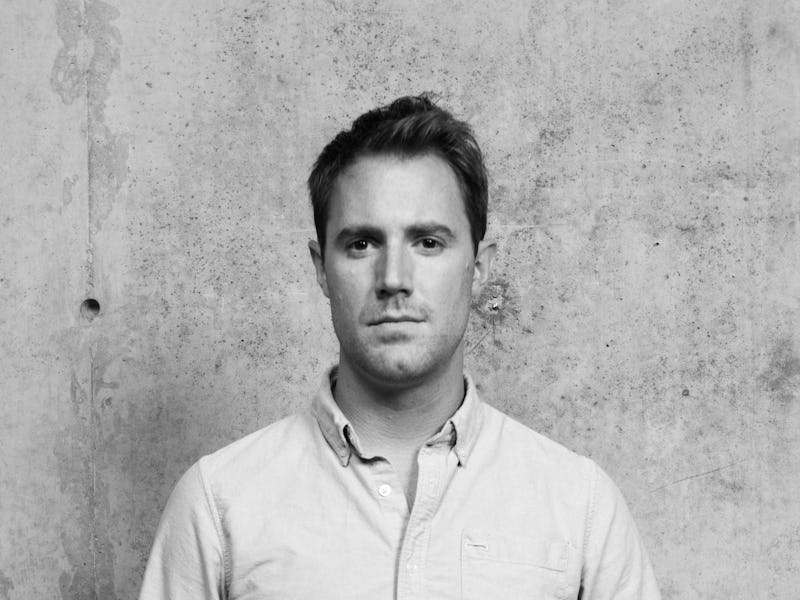JOB HACKS | Keegan DeWitt Approaches Composing as Teamwork
The composer for HBO's 'Divorce' and Fox's 'Making History' talks about music and his career.

Careers rarely go according to plan. In Job Hacks, we shake down experts for the insights they cultivated on their way to the top of their field.
This week, we spoke with composer Keegan DeWitt, whose music can currently be heard on HBO’s Divorce. DeWitt has also composed the Sundance Film Festival favorite Morris from America. He also composed the upcoming Fox show Making History.
Making History and Divorce are both your first time working with major television networks after mostly doing smaller films. Has that been a major change for you?
I did a documentary for HBO, which was awesome but a totally different experience. Doing this stuff — especially with the big expectations and excitement — was definitely a different thing. But I also really benefitted on both of these projects from not having to shuffle through the weird system. I came in to Divorce and Sarah Jessica [Parker] is so down to earth and we had so much time to do it that it wasn’t an intense boot camp feeling. It was really creative and fun. Same with Making History. On both, I was dealing with these really intelligent people. It was the best case scenario. We didn’t have to deal with some guy coming in and trying to really throw his weight around.
Are you going to pivot more towards TV, or will you keep doing a mixture of TV and film?
I like being able to do both. There are certain composers who do one specific thing incredibly well, and I always feel like my library of work is so varied. I like to think it’s because it’s all about collaboration with creative people. When I collaborate with somebody, I’m fully immersed in what their world is. Whether it’s like the junkyard Afrobeat score of Hunter Gather or like the kind of really fun old ‘80s Hollywood vibe of Making History. I try to get really excited about the emotional side of it and go on the adventure with the director. I want to continue to do work in a way where I can work specifically with people, rather than them just sending me footage and I have one meeting and then I send back my standard orchestrated thing.
Even with Divorce in the early stages — because that was such an enduring project and I had to kind of fight to get myself on to that — I really try to approach every project like I’m just another part of the filmmaking process rather than as the composer.
You said you had to fight to get Divorce — what does fighting entail?
They had really cast a wide net and were trying to get a bunch of different ideas. And when something is as large as that comes along, I always try and go “Let me give them something that I’m almost sure that nobody else is going to give them. Even if it comes at the cost of me maybe not getting the job.” Because I feel that I’d always rather be definitive. So I had a long talk with the music supervisor. He told me about this idea of ‘70s-inspired like Jethro Tull and other things that have an emotional, folksy underpinning to them. I just took that and turned it inside out and tried to come up with something as unique as possible.
They were going, “Well, this is not a comedy score.” And I think that they really responded to that. Because when we finally got on the phone and talked, I know Sarah Jessica especially was like, “I wanted something that has an emotional resonance to it.”
Is there any project in particular that has impacted your career the most?
Within the bubble of the industry people are like, “Wow, Divorce is great and so is Making History.” But Hunter Gatherer is a film that is going to have a select audience because it’s at a festival and it’s harder to find distribution. When I go and listen to that score, to me it’s one of the things I’m really proud of, because it sounds really unique and really human and really definitive. And so I don’t ever try and think of it in terms of “What one big thing was an arrival?” It’s more like the unique, personal things that you do that get you up to that point. For me, in the last two years, Hunter Gatherer ironically has been that thing, and it’s one of the smallest projects I did.
Is there any project in the future you’re particularly excited about?
I’m really excited about festival season this year. I’m doing a new film with Brett Haley, who did I’ll See You in My Dreams, which is a film I did maybe two years ago. And this has Sam Elliot in it. And I’m doing a new Alex Ross Perry film and the new Aaron Kass film, all this summer. Those are three people that I’ve worked with and gone to Sundance with in the past. I’m excited to see these new films that they’ve made take them back to festivals.
This interview has been edited for brevity and clarity.